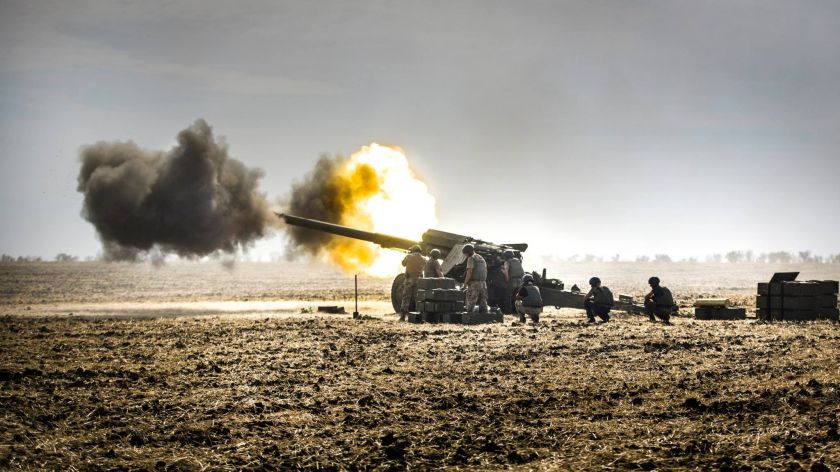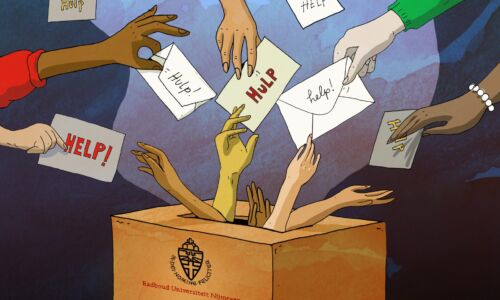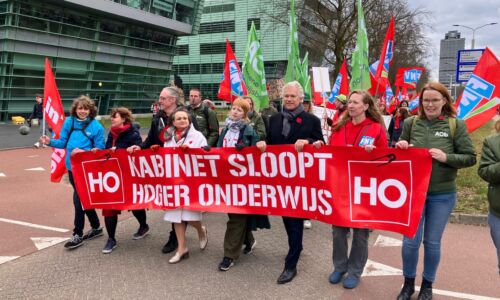-
 Foto: Ministry of Defense of Ukraine (via WikiCommons)
Foto: Ministry of Defense of Ukraine (via WikiCommons)
History is used as a weapon in the war between Ukraine and Russia, according to historians Harm Kaal and Jelle van Lottum. The recent edition of their Journal of Applied History has been fully dedicated to the war.
Almost a year has passed since Russia invaded Ukraine with force. The legitimisation of the war – including the war violence – is often found in the past, historians Harm Kaal and Jelle van Lottum conclude. In the most recent edition of their Journal of Applied History, several historians reflect on the war and the role history plays in it.
‘The use of history in Putin’s rhetoric is remarkable’, Kaal says. ‘The past is constantly twisted and used to legitimise the war. Within the field of applied history, we look at how the past can be used to legitimise certain policies. Putin also uses this strategy. However, he has taken this strategy to an extreme.’
Great Russian empire
What does this legitimisation actually look like? Putin’s strategy is to revalue the great Russian empire, Van Lottum explains. ‘Russia during the tsarist rule, or the former Soviet Union, for example. In his rhetoric, Putin attributes the current weaker position of Russia to the downfall of communism. He wants to restore Russia’s grandeur and power position in the world. That’s what justifies the annexation of Ukraine.’
However, historical information is consulted selectively, Kaal explains. ‘Ukraine has not always belonged to the Russian empire, but it has sometimes been part of it. They have a shared history. However, Putin misleadingly uses this history.’
Applied history
The Journal of Applied History focuses on the impact history has had on the world we live in and how history can be used in our society today. The journal, which is edited by historians Harm Kaal and Jelle van Lottum from Radboud University, is published once or twice a year. The most recent edition is dedicated to the war in Ukraine. The journal includes speeches from Putin, propaganda in the education system of Belarus, and articles on how the president of Ukraine, Volodymyr Zelensky, uses the past to ask for military and financial support from the west.
‘It is not uncommon for nations to use this strategy when they are looking for their raison d’être’, he continues. ‘They then often rely on their shared history, language, and religion. Putin’s rhetoric explains that Russia’s origin historically can be found in Kyiv, because this city is the centre of the Russian Orthodox church. Viewed from that perspective, Ukraine belongs to the Russian nation.’
Propaganda
‘The Second World War is also included in the rhetoric. Whereas the Red Army aimed to liberate Europe from nationalism, the Ukrainians fought with the SS. Putin uses this information to refer to them as nazis. And Ukraine needs to be freed from these nazis and become part of Russia again. In other words: history is used selectively as war propaganda.’
Why is it important to understand the role of history in the world we live in today? ‘Propaganda does not include nuance’, Van Lottum says. ‘If Putin were to use nuance in his speeches, his messages would not be as convincing, and it would certainly not justify the invasion. It is in his interest that all Russian people support the great Russian empire. But do not forget that history is not just one story. There are numerous different perspectives on reality.’
Translated by Sophie Verhoeven.



